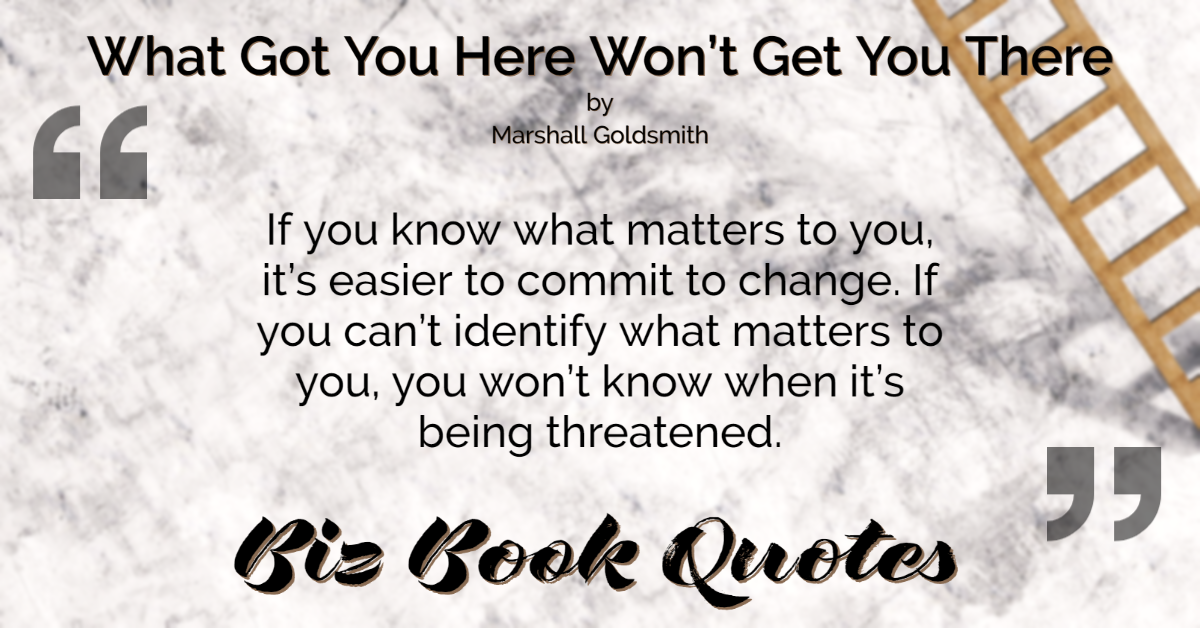 |
If you know what matters to you, it’s easier to commit to change. If you can’t identify what matters to you, you won’t know when it’s being threatened.
|
32 |
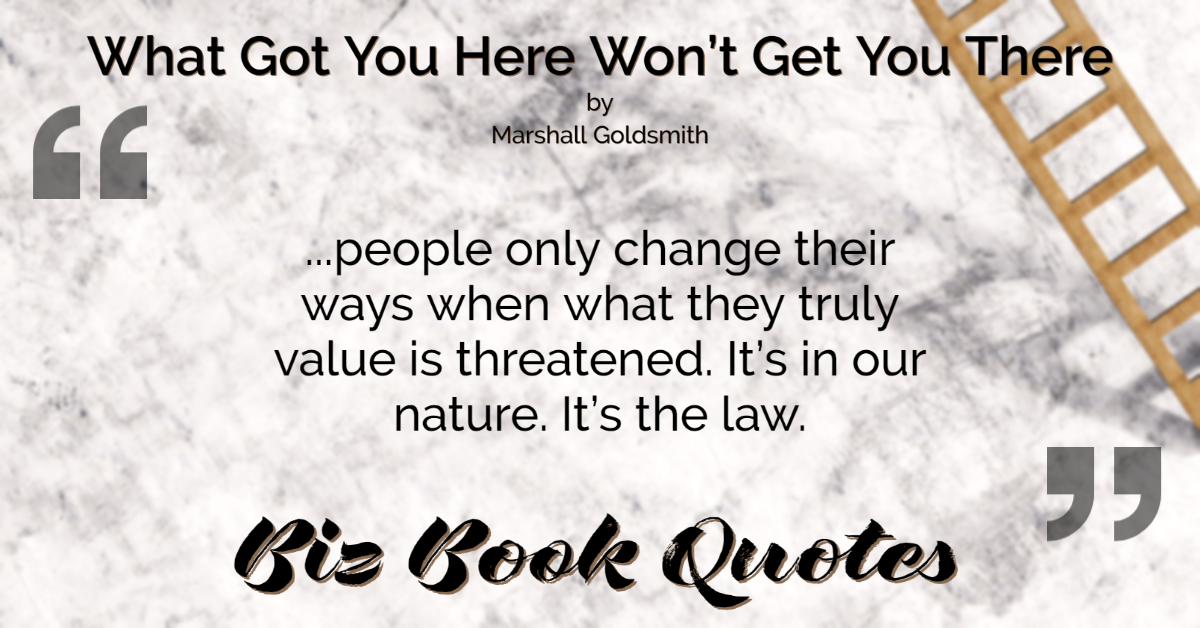 |
…people only change their ways when what they truly value is threatened. It’s in our nature. It’s the law.
|
32 |
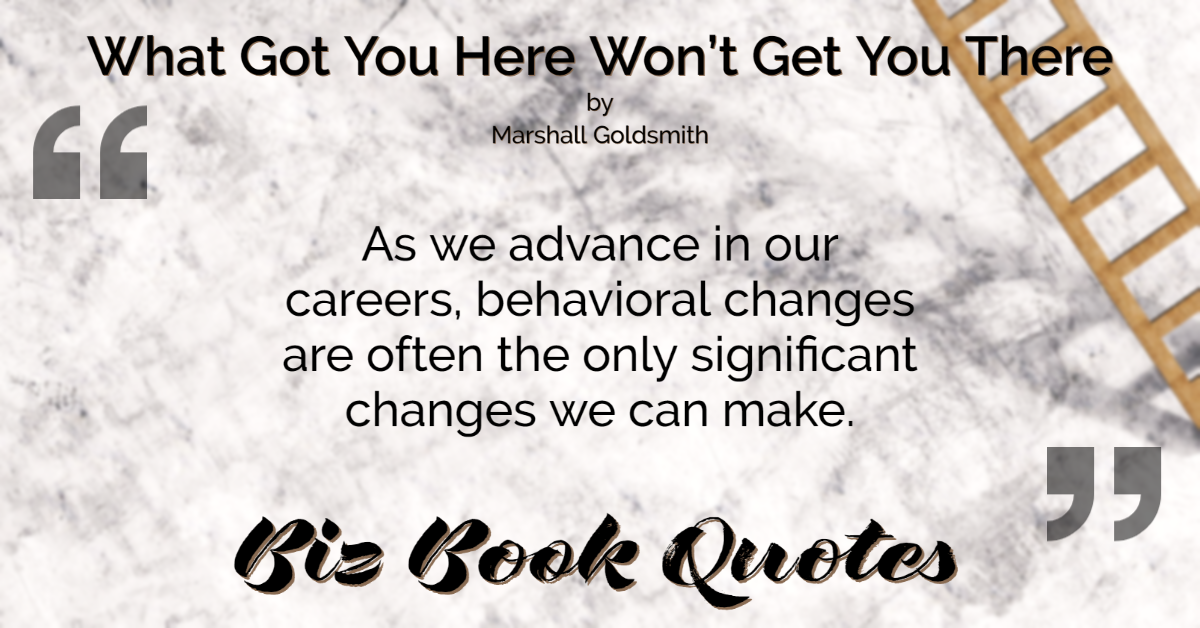 |
As we advance in our careers, behavioral changes are often the only significant changes we can make.
|
44 |
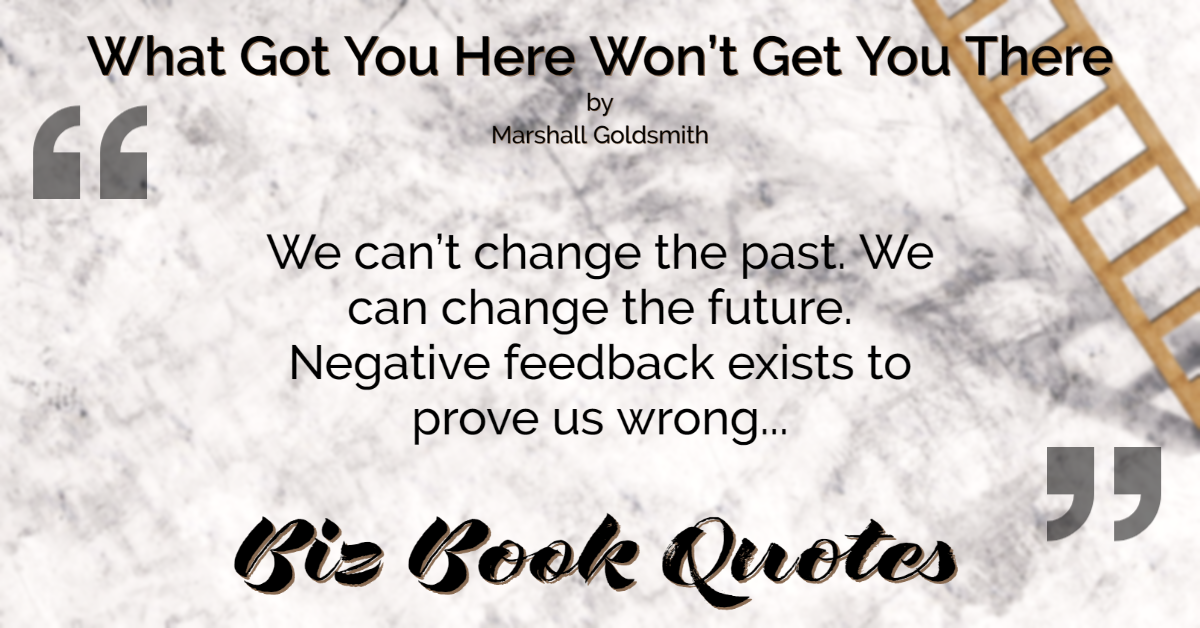 |
We can’t change the past. We can change the future. Negative feedback exists to prove us wrong…
|
112 |
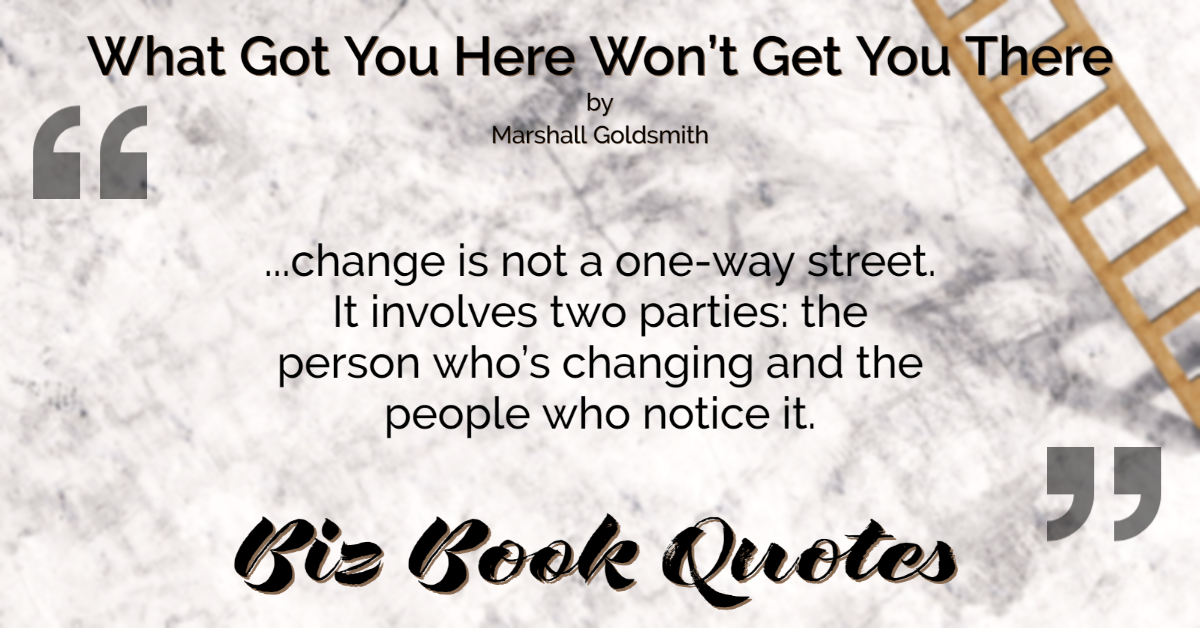 |
…change is not a one-way street. It involves two parties: the person who’s changing and the people who notice it.
|
116 |
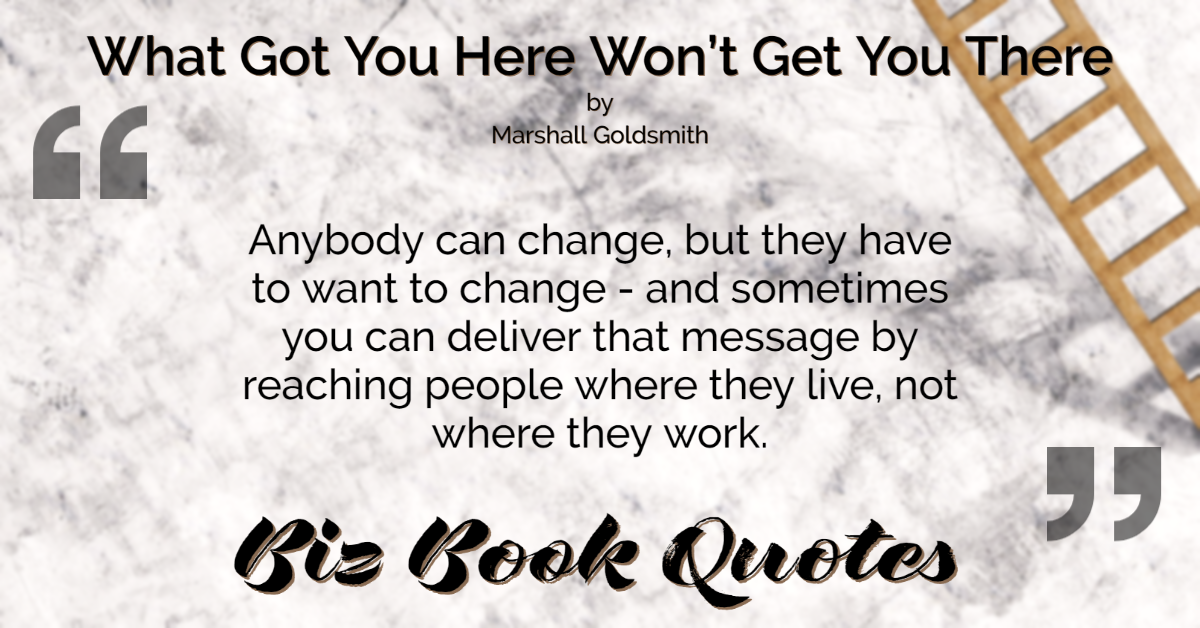 |
Anybody can change, but they have to want to change – and sometimes you can deliver that message by reaching people where they live, not where they work.
|
135 |
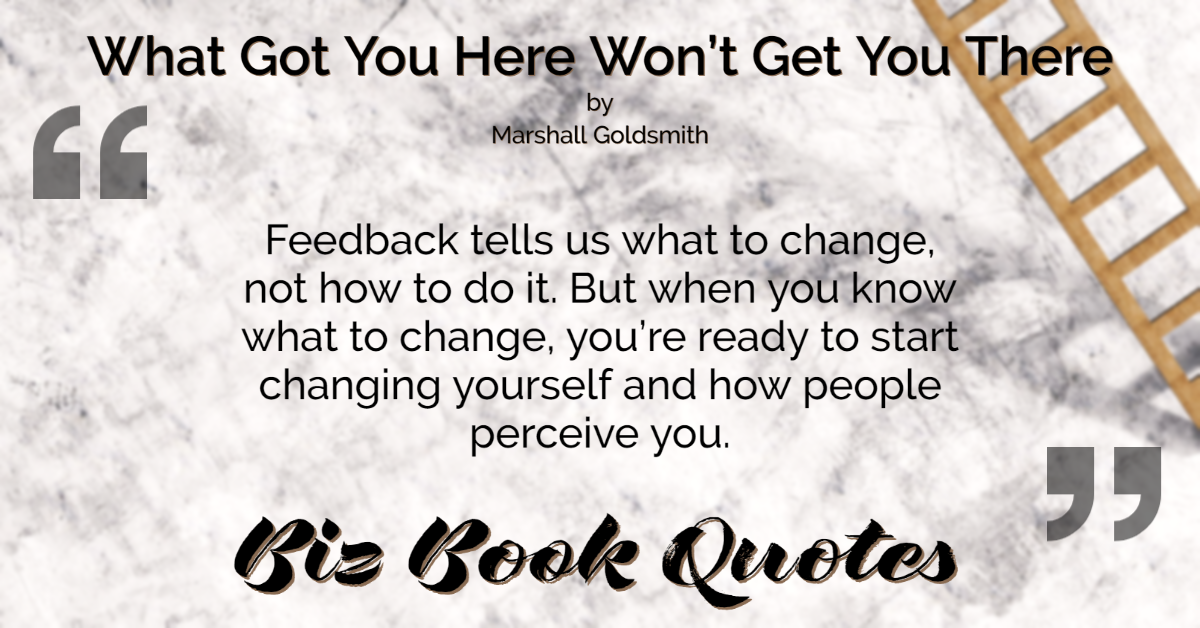 |
Feedback tells us what to change, not how to do it. But when you know what to change, you’re ready to start changing yourself and how people perceive you.
|
135 |
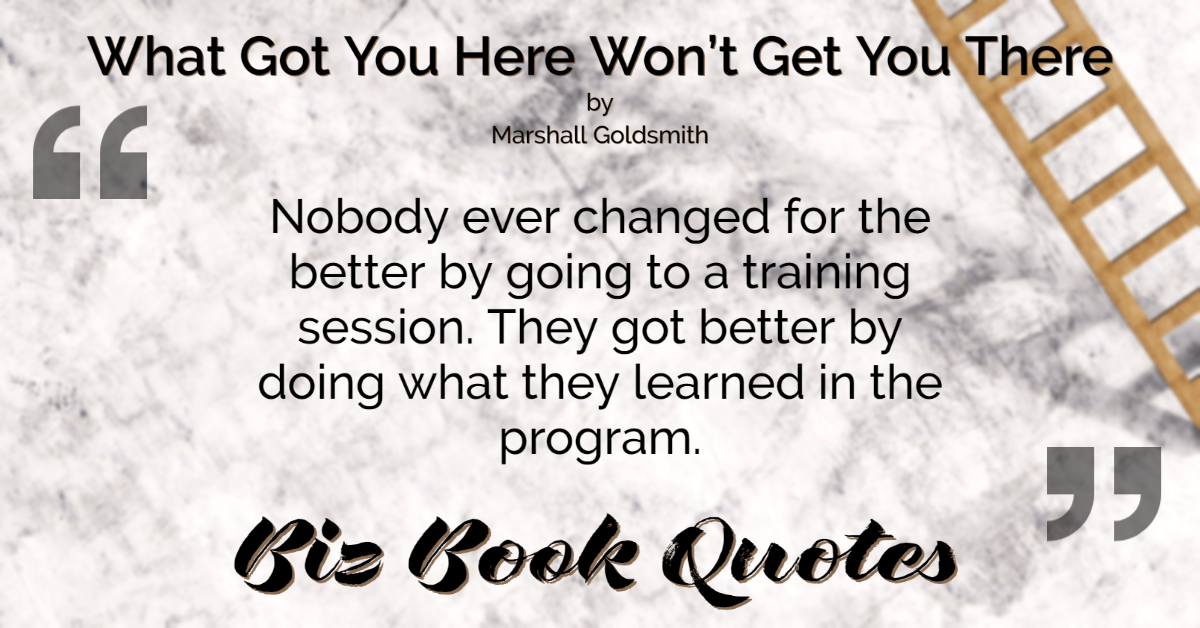 |
Nobody ever changed for the better by going to a training session. They got better by doing what they learned in the program.
|
166 |
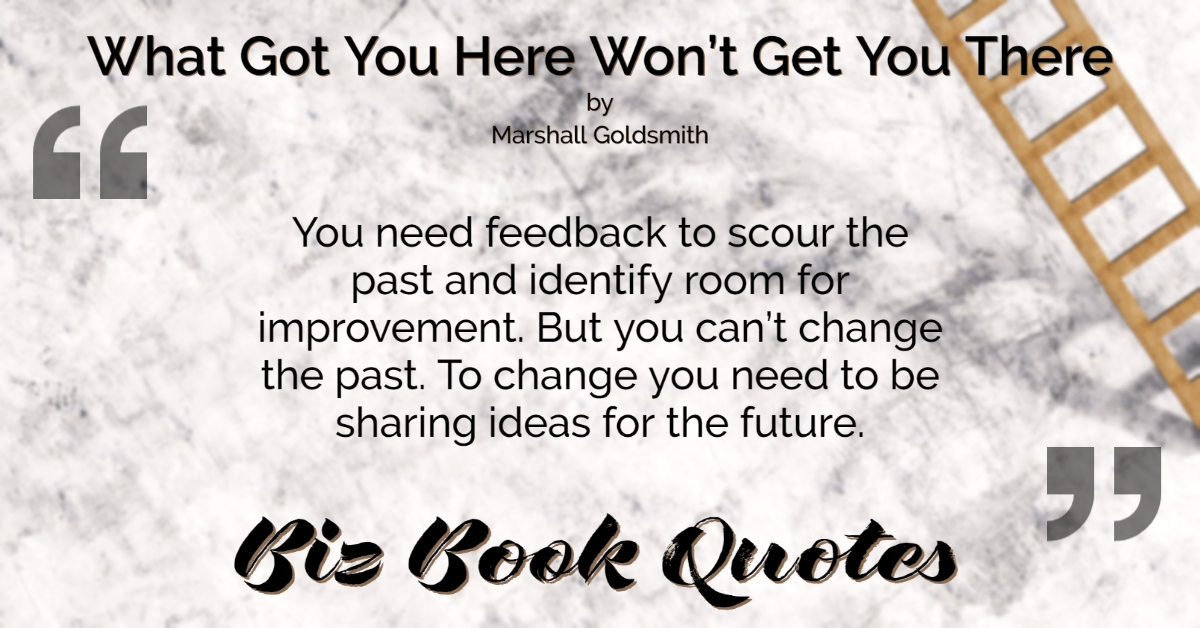 |
You need feedback to scour the past and identify room for improvement. But you can’t change the past. To change you need to be sharing ideas for the future.
|
176 |
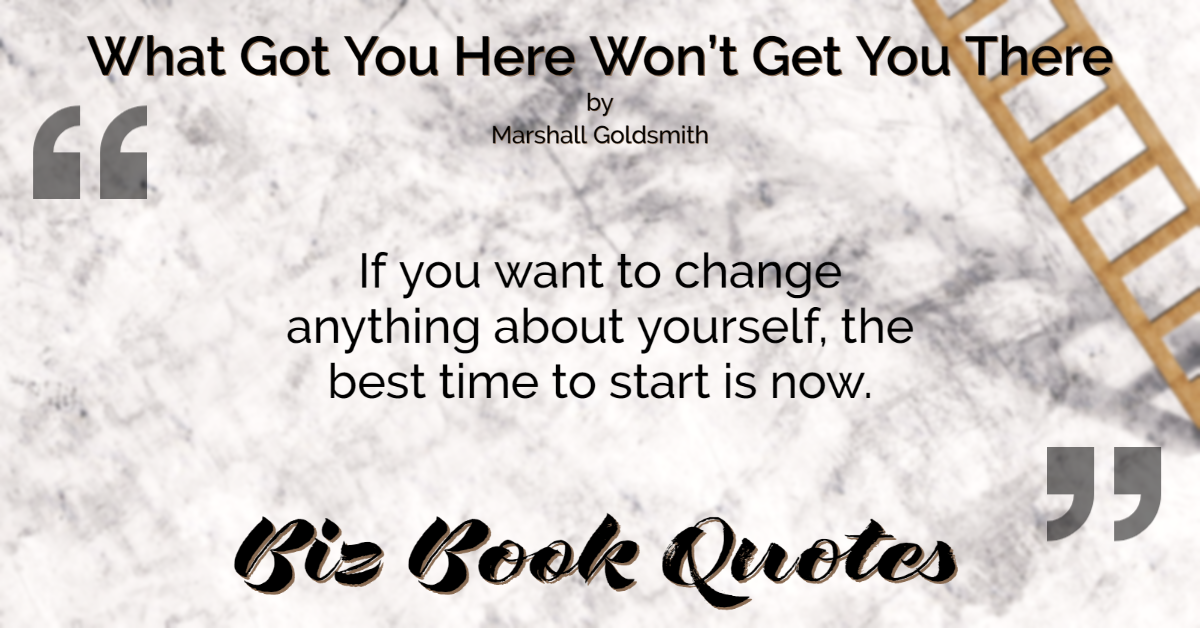 |
If you want to change anything about yourself, the best time to start is now.
|
198 |